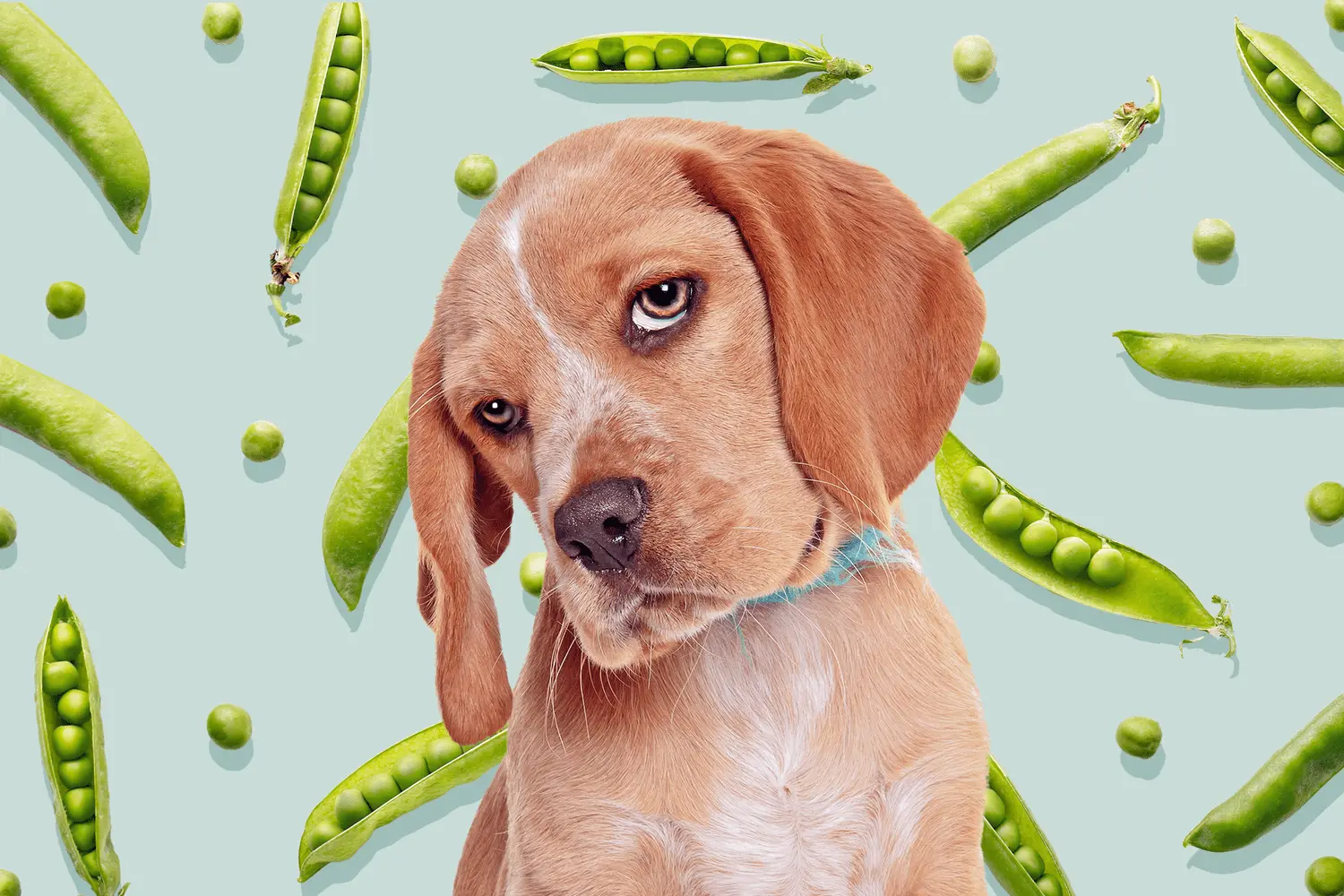Yes, dogs can eat peas! Peas are a healthy and nutritious treat for dogs when served in moderation. They are low in calories and packed with essential nutrients like vitamins A, K, and B, as well as minerals such as iron and potassium. Let’s explore the benefits, potential risks, and how to safely introduce peas into your dog's diet.
Health Benefits of Peas for Dogs
Peas offer a variety of health benefits for dogs:
- Rich in Vitamins: Peas contain vitamin A, which supports healthy skin, coat, and vision. Vitamin K aids in blood clotting, and B vitamins help with energy metabolism.
- High in Fiber: The dietary fiber in peas supports healthy digestion and can help regulate bowel movements.
- Source of Protein: Peas contain plant-based protein, which can complement your dog’s diet, especially if they need extra protein.
- Low-Calorie Treat: Peas are low in calories, making them a great snack option for dogs that need to manage their weight.
Types of Peas That Are Safe for Dogs
- Green Peas: Fresh, frozen, or cooked green peas (like garden peas or English peas) are safe for dogs to eat.
- Snap Peas: Snow peas and sugar snap peas can also be given to dogs. These varieties are crunchy and packed with fiber.
- Cooked Peas: Cooked peas are safe as long as they are plain, without any added salt, butter, or seasonings.
How to Safely Serve Peas to Your Dog
- Moderation is Key: Peas should be given as an occasional treat or supplement to your dog’s regular food, not as a replacement for their complete diet.
- Avoid Canned Peas: Canned peas often contain added salt or preservatives, which can be harmful to dogs. Stick to fresh or frozen peas.
- Small Portions: Always start with small amounts to ensure your dog tolerates peas well. Too many peas can lead to digestive upset, including gas or diarrhea.
- Cooked or Raw: Both raw and cooked peas are safe for dogs. If you cook peas for your dog, make sure they are plain without added seasonings or oils.
Potential Risks and Considerations
While peas are generally safe for dogs, there are a few things to keep in mind:
- High in Purines: Peas contain purines, which can contribute to the formation of kidney stones in some dogs. Dogs with kidney issues or those prone to urinary tract problems should avoid eating peas regularly.
- Choking Hazard: Although rare, small dogs may struggle with whole peas, so it's best to mash or cook them for easier consumption.
Conclusion
Peas can be a healthy and nutritious addition to your dog’s diet, offering vitamins, fiber, and protein. As with any treat, it’s important to serve them in moderation and monitor your dog for any digestive issues, especially if they have a history of kidney problems.
Takeaway Tips
- Moderation: Give peas as an occasional treat, not as a meal replacement.
- Avoid Canned Peas: Stick to fresh or frozen peas without added salt or seasonings.
- Monitor Digestive Health: Watch for any signs of digestive upset, particularly if your dog is sensitive to legumes.


